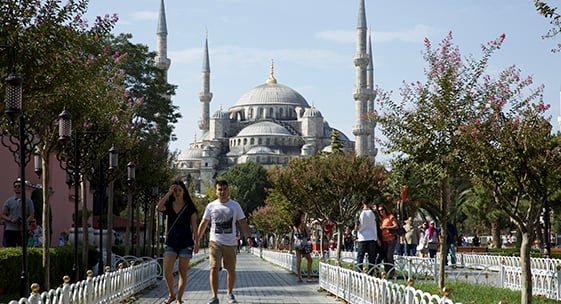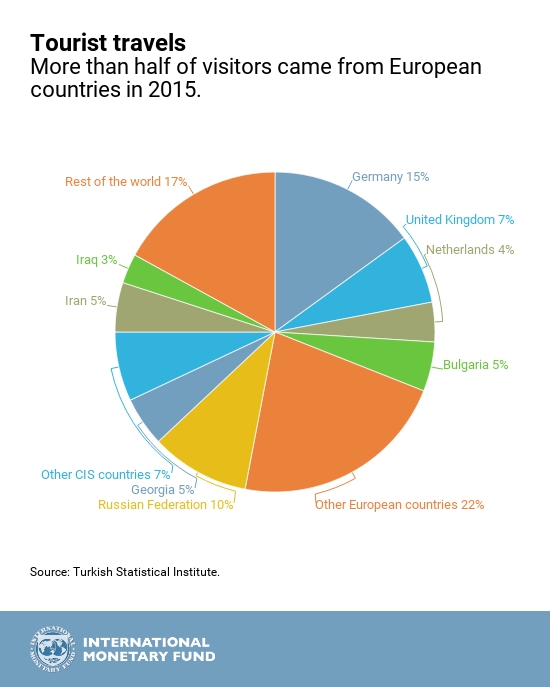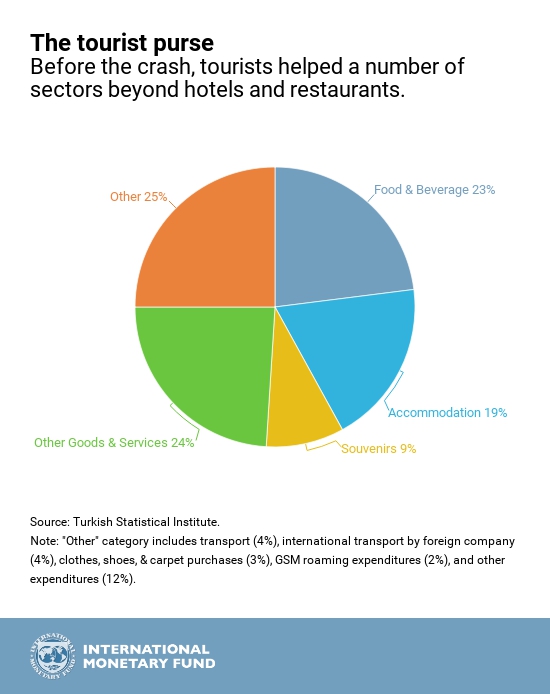
Tourists visiting the Hagia Sophia Mosque in Istanbul. Turkey's tourism numbers are down, which has affected other sectors of the economy (photo: Noe Falk Nielsen/NurPhoto/Sipa U/Newscom)
Turkey's Economy Hit By Declining Tourism
February 23, 2017
Turkey’s previously booming tourism sector was gravely hit in the wake of a series of terrorist attacks and domestic political turmoil. The dwindling number of visitors has hurt connecting sectors, chopping off about one percentage point of GDP from the country’s growth in 2016, according to a recent IMF study.
Just before 2016, Turkey grew into one of the most popular tourist destinations in the world. The growing network of the national air carrier, infrastructure development, hotel construction, and country marketing fueled the expansion. To ease entry, only 3 percent of foreign tourists needed visas, diverting visitors from competitors in the Mediterranean, such as Egypt.

The thriving tourism brought in revenues equivalent to 3.7 percent of GDP and generated 600,000 jobs, or 2.3 percent of total employment. Another million jobs sprung up in related sectors, including restaurant and leisure industries.
The turn came in 2016, with a sharp rise in terrorist attacks coupled with political uncertainty. Terrorist attacks—400 in just 2015 from an average of 70 annually between 2010 and 2014—resulted in a more than 30 percent fall in the number of European tourists who used to make up over half of the visitors. The inflow of another important cohort, Russian tourists fell dramatically due to sanctions, including restrictions on charter flights and sales of travel packages.
.jpg?h=736&w=550)
According to staff estimates, a 10 percent decline in foreign arrivals translates into a 0.3–0.5 percent fall in GDP. Beyond hotels, restaurants and transportation, industries as diverse as telecommunications, retail trade, and textiles have felt the shock. Studies show that the recovery is likely to be slow as repeated incidents of violence tend to have long-lasting effects on tourist arrivals.



